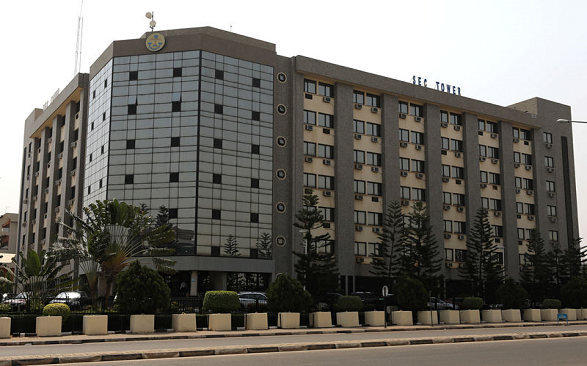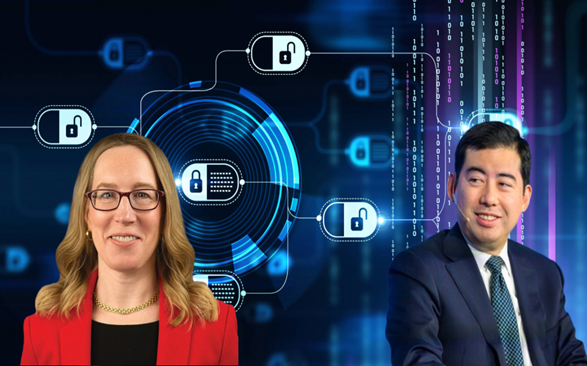By Jude Ayua
Nigeria’s Securities and Exchange Commission (SEC Nigeria) has announced its granting of “Approval-in-Principle” to two Digital Assets Exchange (DAX) firms under its Accelerated Regulatory Incubation Program (ARIP). The SEC’s Management made the announcement on 29 August 2024 via a press statement published on its official website. In addition, the SEC admitted five firms “to test their models and technology under the SEC’s Regulatory Incubation [“RI”] Program,” the press statement disclosed. Among these are four Digital Asset Offering Platform (DAOP) and one Digital Asset Custodian (DAC).
Approvals-in-Principle to be followed by full registration, upon meeting requirements
The SEC iterated that the granting of the approvals-in-principle is “in furtherance of its commitment to enabling innovation that would deepen the capital market while guaranteeing the protection of investors.”
The Commission explained that the “Approvals-in-Principle are a precursor to the grant of full registration by the SEC and are meant to ensure that appropriate protection and transparency is in place in respect of each product or service.” The two Digital Asset Exchange firms granted Approvals-in-Principle are Busha Digital Limited and Quidax Technologies Limited. The four digital assets offering platforms (DAOP) consist of Trovotek Ltd, Wrapped CBDC Ltd, HousingExhange.NG Ltd, and Dream City Capital, while the only DAC is Blockvault Custodian Ltd.
More Approvals-in-Principle underway
The SEC also noted that the firms provisionally approved above were not the only ones that applied to the ARIP and the RI program. The Commission stated that more applications are being assessed and would be granted the Approval-in-Principle on a case-by-case basis if they meet the applicable requirements.
The SEC Rules 2022 require virtual assets service providers in Nigeria to obtain an operating license from the Commission. Following the rules, the SEC introduced the ARIP to onboard firms that had been operating before its release. The RI Program on the other hand was launched in June 2021 to assess the business models of digital assets firms and test products, services, and operations in real market situations.
Read also: SEC Nigeria finally issues framework for VASPs.
Two days before the SEC’s announcement, Decrypt wrote that Quidax was the “first known exchange in Nigeria to receive a provisional operating license from national regulators,” a statement they attributed to Quidax. Decrypt however noted that “the announcement proved to be premature.” Indeed, it was, as Quidax eventually released a statement the following day to “provide some clarity on the matter to avoid any misunderstandings.” Interestingly, a week ago, the same news of Quidax being issued a provisional license by SEC Nigeria was reported on several news sites. In January 2024, it was reported by Techcabal that two crypto startups, Luno and Quidax, had applied for SEC Nigeria license, following the lifting of the crypto restriction by the Central Bank of Nigeria (CBN) a month earlier.
Read also: Finally, ‘crypto ban’ in Nigeria lifted by the CBN
Implications of the Approval-in-Principle
An Approvals-in-Principle, also called “in-principle approval”, means “the initial acceptance by an authoritative entity for a proposed action subject to fulfillment of set conditions.” The SEC’s “approval-in-principle” therefore implies that the firms have met certain requirements, but the Commission has not fully approved them until they meet other conditions. It also indicates that the SEC is carefully scrutinizing the firms under review to ascertain that they meet the relevant requirements under its rules.
What this means for non-approved firms is that they cannot legally operate in Nigeria yet. The SEC has warned the public “to refrain from dealing with illegal operators who have not applied to and received the SEC’s approval under the ARIP or the RI Program.” The Commission also advised intending investors to confirm with the SEC if entities offering investment services are legally empowered to do so.
Toward a conducive regulatory climate
The “Approvals-in-Principle” the SEC has granted to DAX firms in Nigeria signify a promising future in the Nigerian digital assets and cryptocurrency market. Cryptocurrency has faced stringent and restrictive measures, including clampdowns, within Nigeria’s regulatory climate. However, the recent steps by SEC Nigeria is heading toward a prospective conducive regulatory climate in the country.
SEC Nigeria’s provisional licences are proof that the SEC is responding positively to the appeal by stakeholders in the digital assets industry, including the Blockchain Industry Coordinating Committee of Nigeria (BICCoN), and the Fintech Association of Nigeria, to regulate and not stifle innovation in the emerging digital assets sector.
Discover more from Crypto Asset Buyer
Subscribe to get the latest posts sent to your email.





